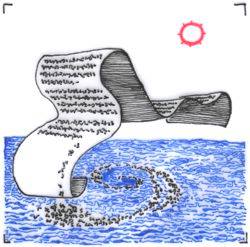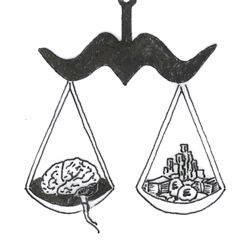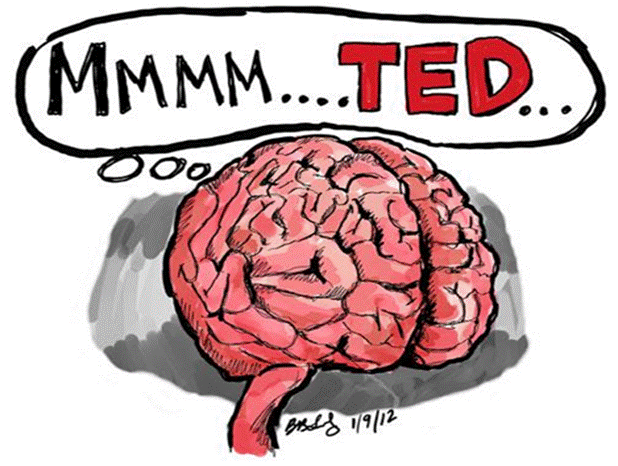Team:UCL/Practice
From 2013.igem.org
| (17 intermediate revisions not shown) | |||
| Line 47: | Line 47: | ||
<div class="col_left" style="width:100%;"> | <div class="col_left" style="width:100%;"> | ||
| - | <p class="major_title"> | + | <p class="major_title">NEURO-GENETHICS</p> |
| - | <p class="minor_title"> | + | <p class="minor_title">Neuroethical Issues In Synthetic Biology</p> |
<p class="abstract_text" style="color:#404040;"> | <p class="abstract_text" style="color:#404040;"> | ||
| - | Over the last decade there has been mounting public interest in genetic engineering and the potential and pitfalls of associated emerging technologies. These technologies promise much, potentially even treatments for brain diseases, such as Alzheimer's disease, and yet genetic modification of the brain is something many would feel uneasy about, despite the horrors it tries to mitigate. 'Neuro-genetic engineering' may slip over into other areas, including psychological therapy and cognitive enhancements, changing the way society views its minds forever.<br><br> | + | Over the last decade there has been mounting public interest in genetic engineering and the potential and pitfalls of associated emerging technologies. These technologies promise much, potentially even treatments for brain diseases, such as Alzheimer's disease, and yet genetic modification of the brain is something many would feel uneasy about, despite the horrors it tries to mitigate. 'Neuro-genetic engineering' may slip over into other areas, including psychological therapy and cognitive enhancements, changing the way society views its minds forever. To see who we have contacted in the scientific community about our idea, and the feedback, see attributions.<br><br> |
</p> | </p> | ||
<p class="abstract_text" style="color:#C14645;"> | <p class="abstract_text" style="color:#C14645;"> | ||
| Line 67: | Line 67: | ||
<div class="row_small"> | <div class="row_small"> | ||
| - | <div class="col_illustration" | + | <div class="col_illustration"> |
| - | + | <a href="https://static.igem.org/mediawiki/2013/9/95/EternalSunshine.png" data-lightbox="image-1" title="'Eternal Sunshine' UCL iGEM 2013"> | |
| + | <img src="https://static.igem.org/mediawiki/2013/9/95/EternalSunshine.png"> | ||
| + | </a> | ||
| + | </div> | ||
<div class="col_abstract"> | <div class="col_abstract"> | ||
| - | <a href=" | + | <a href="https://2013.igem.org/Team:UCL/Memories"> |
<p class="abstract_title">Eternal Sunshine</p> | <p class="abstract_title">Eternal Sunshine</p> | ||
<p class="abstract_text"> | <p class="abstract_text"> | ||
| - | An emotional piece of interactive art, this is a | + | An emotional piece of interactive art, this is a repository for users’ most precious memories, which highlights the cost of losing them. |
</p> | </p> | ||
</a> | </a> | ||
| Line 87: | Line 90: | ||
<div class="row_small"> | <div class="row_small"> | ||
| - | <div class="col_illustration" | + | <div class="col_illustration"> |
| - | + | <a href="https://static.igem.org/mediawiki/2013/f/f5/CreativeWriting.gif" data-lightbox="image-1" title="Creative Writing Competition UCL iGEM 2013"> | |
| + | <img src="https://static.igem.org/mediawiki/2013/f/f5/CreativeWriting.gif"> | ||
| + | </a> | ||
| + | </div> | ||
| + | |||
<div class="col_abstract"> | <div class="col_abstract"> | ||
| Line 107: | Line 114: | ||
<div class="row_small"> | <div class="row_small"> | ||
| - | <div class="col_illustration" | + | <div class="col_illustration"> |
| - | + | <a href="https://static.igem.org/mediawiki/2013/6/61/Neuroethics.gif" data-lightbox="image-1" title="'Neuro-genethics' Report UCL iGEM 2013"> | |
| + | <img src="https://static.igem.org/mediawiki/2013/6/61/Neuroethics.gif"> | ||
| + | </a> | ||
| + | </div> | ||
<div class="col_abstract"> | <div class="col_abstract"> | ||
| Line 114: | Line 124: | ||
<p class="abstract_title">Neuroethics Report</p> | <p class="abstract_title">Neuroethics Report</p> | ||
<p class="abstract_text"> | <p class="abstract_text"> | ||
| - | + | The brain is the the part of us that makes oneself one’s self. As such there are misgivings towards infringing on its natural sovereignty. We investigate the murky ethics surrounding various applications, from medicine to the enhancements. | |
</p> | </p> | ||
</a> | </a> | ||
| Line 127: | Line 137: | ||
<div class="row_small"> | <div class="row_small"> | ||
| - | <div class="col_illustration" | + | <div class="col_illustration"> |
| - | + | <a href="https://static.igem.org/mediawiki/2013/a/a4/DocumentaryUCLigem.gif" data-lightbox="image-1" title="Neuro-genethics Documentary UCL iGEM 2013"> | |
| - | + | <img src="https://static.igem.org/mediawiki/2013/a/a4/DocumentaryUCLigem.gif"> | |
| + | </a> | ||
| + | </div> | ||
<div class="col_abstract"> | <div class="col_abstract"> | ||
<a href="https://2013.igem.org/Team:UCL/Practice/Documentary"> | <a href="https://2013.igem.org/Team:UCL/Practice/Documentary"> | ||
| Line 147: | Line 159: | ||
<div class="row_small"> | <div class="row_small"> | ||
| - | <div class="col_illustration" | + | <div class="col_illustration"> |
| - | + | <a href="https://static.igem.org/mediawiki/2013/7/76/SpeedDebate.gif" data-lightbox="image-1" title="Neuro-genethics Speed Debate UCL iGEM 2013"> | |
| + | <img src="https://static.igem.org/mediawiki/2013/7/76/SpeedDebate.gif"> | ||
| + | </a> | ||
| + | </div> | ||
<div class="col_abstract"> | <div class="col_abstract"> | ||
| Line 167: | Line 182: | ||
<div class="row_small"> | <div class="row_small"> | ||
| - | <div class="col_illustration" | + | <div class="col_illustration"> |
| - | + | <a href="https://static.igem.org/mediawiki/2013/9/9d/Balance.gif" data-lightbox="image-1" title="Treatment Feasibility Report UCL iGEM 2013"> | |
| + | <img src="https://static.igem.org/mediawiki/2013/9/9d/Balance.gif"> | ||
| + | </a> | ||
| + | </div> | ||
<div class="col_abstract"> | <div class="col_abstract"> | ||
| Line 187: | Line 205: | ||
<div class="row_small"> | <div class="row_small"> | ||
| - | <div class="col_illustration" | + | <div class="col_illustration"> |
| - | + | <a href="https://static.igem.org/mediawiki/2013/4/45/OnlineSurveyUCligem.gif" data-lightbox="image-1" title="Neuro-genethics Online Survey UCL iGEM 2013"> | |
| + | <img src="https://static.igem.org/mediawiki/2013/4/45/OnlineSurveyUCligem.gif"> | ||
| + | </a> | ||
| + | </div> | ||
<div class="col_abstract"> | <div class="col_abstract"> | ||
| Line 208: | Line 229: | ||
<div class="row_small"> | <div class="row_small"> | ||
| - | <div class="col_illustration" | + | <div class="col_illustration"> |
| - | + | <a href="https://static.igem.org/mediawiki/2013/9/98/TEDdebateUCLiGEM.gif" data-lightbox="image-1" title="Neuro-genethics in TED Conversations"> | |
| + | <img src="https://static.igem.org/mediawiki/2013/9/98/TEDdebateUCLiGEM.gif"> | ||
| + | </a> | ||
| + | </div> | ||
<div class="col_abstract"> | <div class="col_abstract"> | ||
Latest revision as of 17:27, 11 September 2013
NEURO-GENETHICS
Neuroethical Issues In Synthetic Biology
Over the last decade there has been mounting public interest in genetic engineering and the potential and pitfalls of associated emerging technologies. These technologies promise much, potentially even treatments for brain diseases, such as Alzheimer's disease, and yet genetic modification of the brain is something many would feel uneasy about, despite the horrors it tries to mitigate. 'Neuro-genetic engineering' may slip over into other areas, including psychological therapy and cognitive enhancements, changing the way society views its minds forever. To see who we have contacted in the scientific community about our idea, and the feedback, see attributions.
Click the abstracts below to read more.
 "
"







